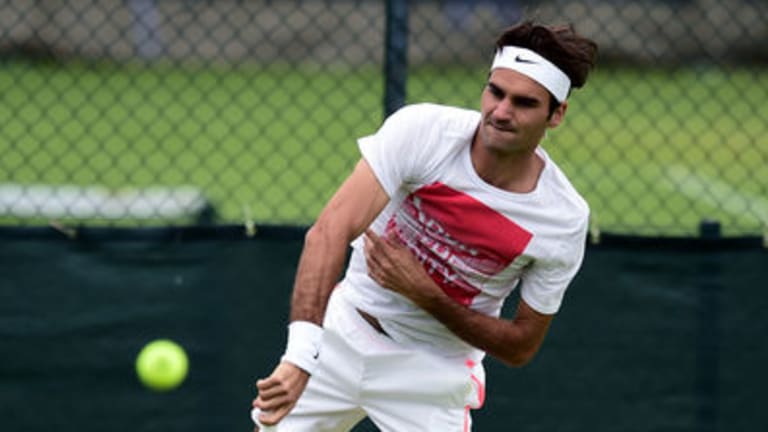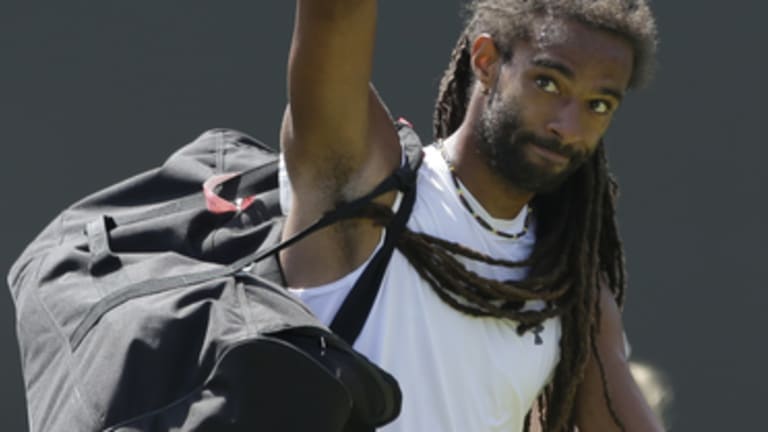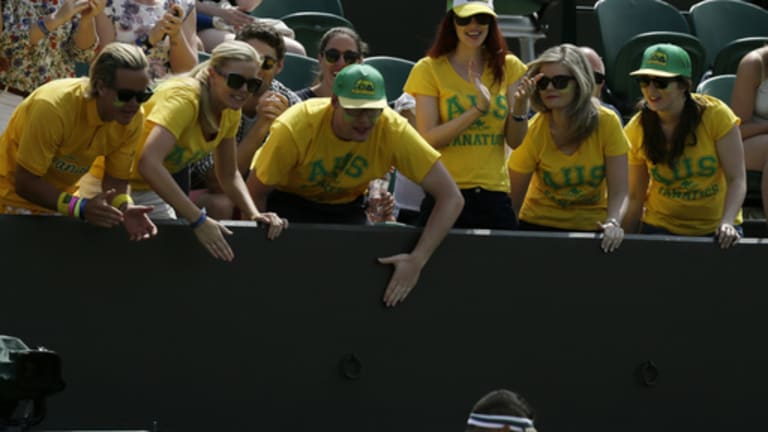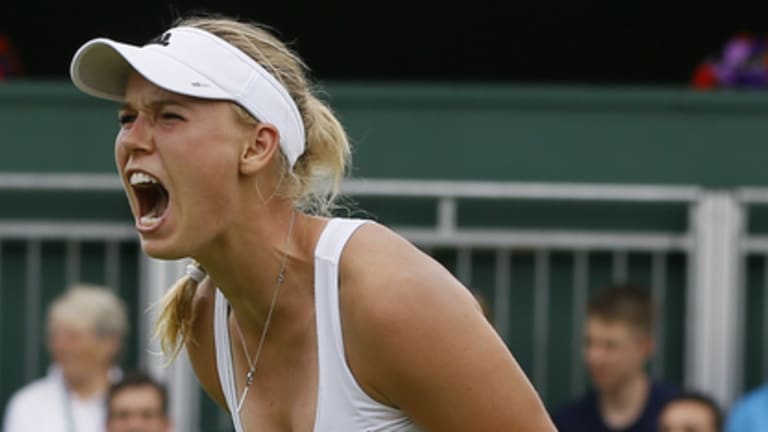Being a world away from home, it’s hardly a shock that a trio of young Aussies—Thanasi Kokkinakis, Kyrgios and Bernard Tomic—were all feeling a bit homesick, of sorts.
Kyrgios said he was suffering from a sinus infection, while Tomic claimed he felt dizzy on Wednesday, when the highest ever temperature was recorded at Wimbledon—rising to nearly 97 degrees Fahrenheit.
But Kokkinakis had it the worst. Feeling the after-effects of what he thought was food poisoning, he vomited in his mouth and had little in the tank against Argentina’s Leonardo Mayer.
“It’s just disappointing,” said Kokkinakis, who has quietly had a solid season. “Big tournament, and you are trying to play as well as you can, but you’re not quite with it.”
Tennis Australia might be feeling sick, too, after Tomic’s tirade Friday.
Three years after their miraculous title run at Wimbledon, Jonathan Marray and Frederik Nielsen were reunited, and no one will be taking them lightly. As wild cards, they reached the third round after upsetting Juan-Sebastian Cabal and Robert Farah in four sets on Saturday.
The pair stunned the field as wild cards in 2012, going the distance—and don’t forget, at Wimbledon that means five sets in doubles contests—in four of their six matches. They stunned the Bryan brothers in the semifinals and inflicted more Wimbledon heartache on Robert Lindstedt and Horia Tecau in the finale.
It was Nielsen’s decision to cut tie because the Dane wanted to focus on singles. The move hasn’t paid off in terms of his ranking: 305th when Wimbledon began in 2012, he currently sits at 269th.
Jarkko Nieminen is close to completing a calendar-year Grand Slam: At the Australian Open, French Open and Wimbledon in this, his final year on the tour, the 33-year-old Finn has played on center court at least once.
In Melbourne it came against Stan Wawrinka in the third round; he faced Novak Djokovic in the first round at the French Open; the lefty met Djokovic again at Wimbledon in the second round.
The likable Nieminen was applauded off court by longtime pal Djokovic at the All England Club, a nice touch.
“Even though I would like to meet top guys a little later in the draw, at the same time it has been amazing that during this last season of mine, my last matches in all three Grand Slams so far have been in the biggest stadiums,” Nieminen said on his great Web site. “That’s pretty cool.”
Are you taking note, USTA?



